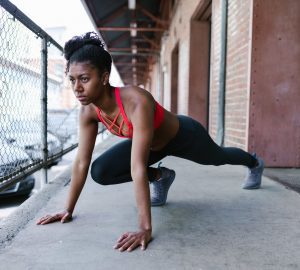In the quest for improved fitness, many of us envision grand feats of athleticism: marathon finishes, cross-country bike rides, or the conquest of formidable physical challenges. Yet, for the majority, these lofty fitness habits remain distant dreams. But what if I told you that the key to achieving your fitness goals lies not in grandiose ambitions but in the subtle nuances of your own mindset?
If you’re like most individuals striving for better fitness, you’re not necessarily aiming for extraordinary athletic feats. Instead, you seek a healthier, more energetic lifestyle. Yet, what often goes overlooked is the profound influence that your perspective on fitness exerts on your ability to attain it. The way you think about your own fitness, your beliefs, and your approach to cultivating habits can significantly impact your success in this journey.
In this article, we’ll delve into the intricate relationship between mindset and fitness habits. By understanding how your thoughts and attitudes shape your behaviors, you’ll uncover powerful strategies for transforming your fitness aspirations into tangible, sustainable habits. So, let’s explore how harnessing the power of your mind can pave the way for lasting progress on your fitness journey.
Growth Mindset Versus Fixed Mindset
When it comes to exercise and fitness, most people fall into one of two mindsets: a growth mindset or a fixed mindset.
A fixed mindset is where most people are at right now. A fixed mindset says that you’re the kind of people who doesn’t have the motivation or the strength to reach a particular fitness goal. There’s just no way you could find the time, or you’re just too lazy or like eating pizza too much. When you fall off the bandwagon, you tell yourself unhelpful stories about yourself, like you’re not disciplined or you lack perseverance when things get tough. When that happens, you create a destructive cycle, believing that fitness isn’t something you have because you can’t get results right now.
People with a growth mindset, however, don’t see their lack of fitness as some foregone conclusion. Instead, they approach it like any other skills, like playing an instrument. Nobody approaches the guitar believing that they’re going to be able to riff like Nile Rogers from the outset. It takes time, patience, and a lot of repetition to become professional.
Fitness, unfortunately, is rarely seen through the lens of a growth mindset. It’s all about applying brute force and “busting plateaus” rather than just developing a skill that will stay with you for life.
How To Develop Fitness As A Skill
Developing fitness as a skill requires the same degree of thought and humility as developing any other. The first thing to do is to create strategies elsewhere in your life that will help you overcome your fitness sticking points.
For many, doing exercise is a physically painful experience. You’re puffed out, your heart is racing, and your muscles feel like lead. Sure, part of the reason they do is that you’re in an untrained state and your body isn’t used to it. But a big part of the story is your diet. Swapping out the burgers for dal will make a big difference to your body’s capacity to withstand exercise.

It’s also worth going to trade shows to find out what you can do to get into the fitness-as-a-lifestyle mindset, instead of seeing it as something transient. Keeping fit should feel like eating breakfast or cleaning your teeth: just something you do every day out of habit to maximize your chances of success and health in the future.
The last thing you want to do when it comes to achieving fitness as a skill is jumping in at the deep end, doing CrossFit, and then feeling sick and tired. It should be a gentle ramp from where you are today to where you want to be two years from now.








